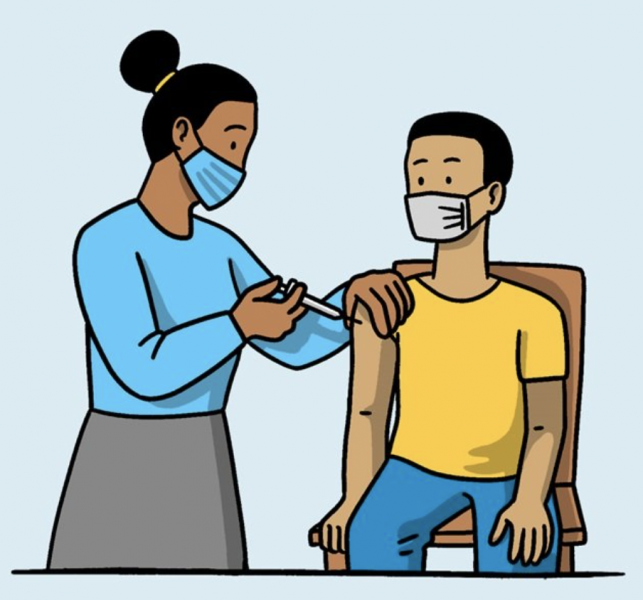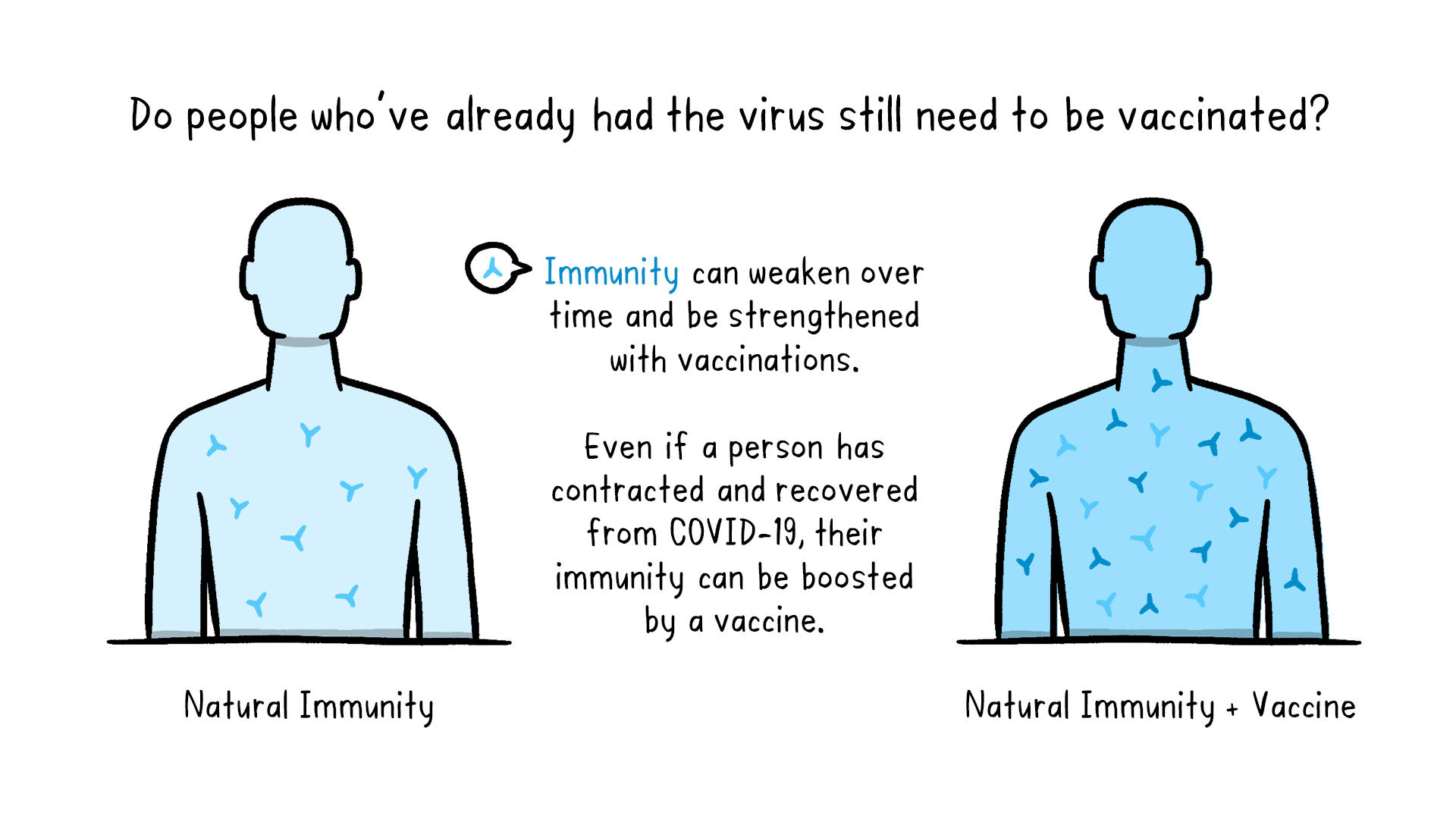
Getting the COVID-19 Vaccine
April 8, 2021
This article is part of a series of explainers on vaccine development and distribution. Learn more about vaccines – from how they work and how they’re made to ensuring safety and equitable access – in WHO’s Vaccines Explained series.
Vaccines are a critical tool in the battle against COVID-19, and getting vaccinated is one of the best ways to protect yourself and others from COVID-19.
Getting vaccinated is safer than getting infected
Vaccines train our immune system to recognize the targeted virus and create antibodies to fight off the disease without getting the disease itself. After vaccination, the body is ready to fight the virus if it is later exposed to it, thereby preventing illness.
Most people who are infected with SARS-CoV-2, the virus that causes COVID-19, develop an immune response within the first few weeks, but we are still learning how strong and lasting that immune response is, and how it varies between different people.
People who have already been infected with SARS-CoV-2 should still get vaccinated unless told otherwise by their health care provider. Even if you’ve had a previous infection, the vaccine acts as a booster that strengthens the immune response. There have also been some instances of people infected with SARS-CoV-2 a second time, which makes getting vaccinated even more important.

What to expect during vaccination
Medical professionals can best advise individuals on whether or not, and when, they should receive a vaccine. A health worker will administer the vaccine, and the person receiving it will be asked to wait for 15–30 minutes before leaving the vaccination site. This is so that health workers can observe individuals for any unexpected reactions following vaccination.
Like any vaccine, COVID-19 vaccines can cause mild-to-moderate side effects, such as a low-grade fever or pain or redness at the injection site. These should go away on their own within a few days. See WHO’s Safety of COVID-19 Vaccines explainer and Vaccines Safety Q&A to learn more about common side effects and find out who should consult with a doctor before vaccination.
